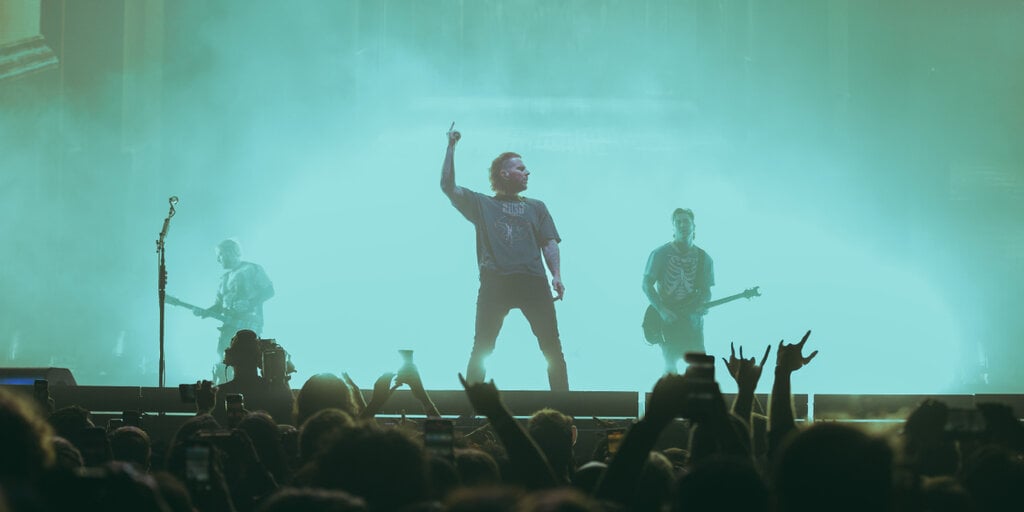The Impact of AI in Music Industry: Insights from Avenged Sevenfold’s Matt Sanders
Artificial Intelligence (AI) has ignited a fierce debate within the music community, with some musicians decrying its use as “catastrophic” while others eagerly embrace the technology. For Avenged Sevenfold frontman Matt Sanders, also known as M. Shadows, the question is not whether AI will infiltrate the music industry, but rather when it will do so.
In a recent conversation with Decrypt, Sanders expressed his viewpoint on AI, confidently stating, “Do I think humans will care in 20 years if music is composed by a person or a robot? No, I do not.” Dismissing fans who advocate for supporting human artists over AI-created music, Sanders emphasized that ultimately what matters most to listeners is the emotional connection they feel towards a piece of music, regardless of its origin.
Sanders compared using AI as a creative tool to referencing a thesaurus or utilizing search engines like Google. As a songwriter, he views AI as a means to enhance his imaginative process and bring his musical visions to fruition. He noted, “AI serves as a deeper tool that can be trained on a data aggregate, potentially enabling the creation of music that reflects one’s unique style and essence.”
Expanding Horizons through AI
According to Sanders, AI is not confined to a mere trend but rather a transformative force that will shape various aspects of daily life, such as driving, internet interactions, and smartphone engagement. He envisioned a multitude of possibilities stemming from AI technology, including voice replication, song creation, and facilitating chord progressions.
In a previous interview with Decrypt’s gm podcast, Sanders proposed the idea of fans using AI trained on Avenged Sevenfold’s music to produce their own records. He expressed enthusiasm about relinquishing creative control to empower fans to generate their interpretations of the band’s music. This sentiment mirrors the approach of Canadian artist Grimes, who pledged to share royalties with fans who produce successful AI-generated songs using her voice.
The integration of AI in music production has already been embraced by iconic bands such as The Beatles, who utilized AI to enhance a John Lennon vocal track, and Guns N’ Roses, who employed AI for animating their music video “The General.” Despite these advancements, some musicians, including Billie Eilish and Katy Perry, have raised concerns about the potential negative ramifications of AI on artists’ livelihoods.
Embracing Change and Innovation
Despite apprehensions voiced by some artists, Sanders advocates for embracing AI as an inevitable progression in the music industry’s evolution. He emphasized that attempting to impede AI’s integration would be futile, given the relentless march of technological advancement witnessed across various sectors.
While AI presents a wealth of opportunities for streamlining music production processes and enhancing creativity, Sanders acknowledged that at present, human artists retain a distinctive edge in eliciting profound emotional responses from audiences. He posited, “An artist, for now, must transport listeners to uncharted territories—a feat that AI has yet to replicate. However, the future remains open to endless possibilities.”
In conclusion, Sanders’ perspective sheds light on the nuanced relationship between AI and music creation, highlighting the need for artists to adapt to and leverage emerging technologies to nurture innovation and artistic expression.
Image/Photo credit: source url





